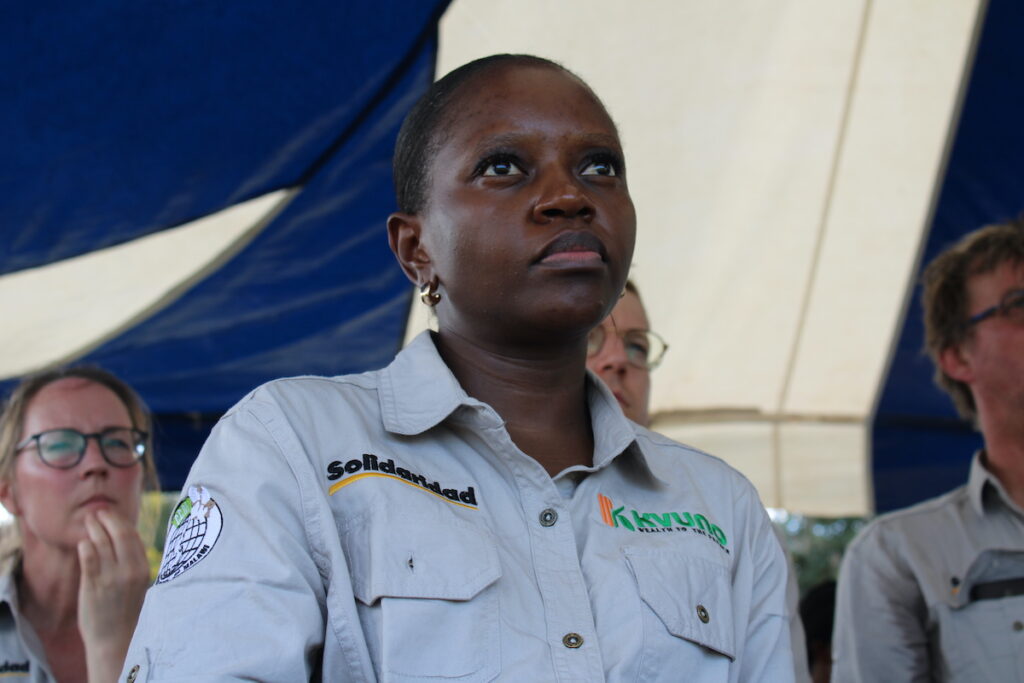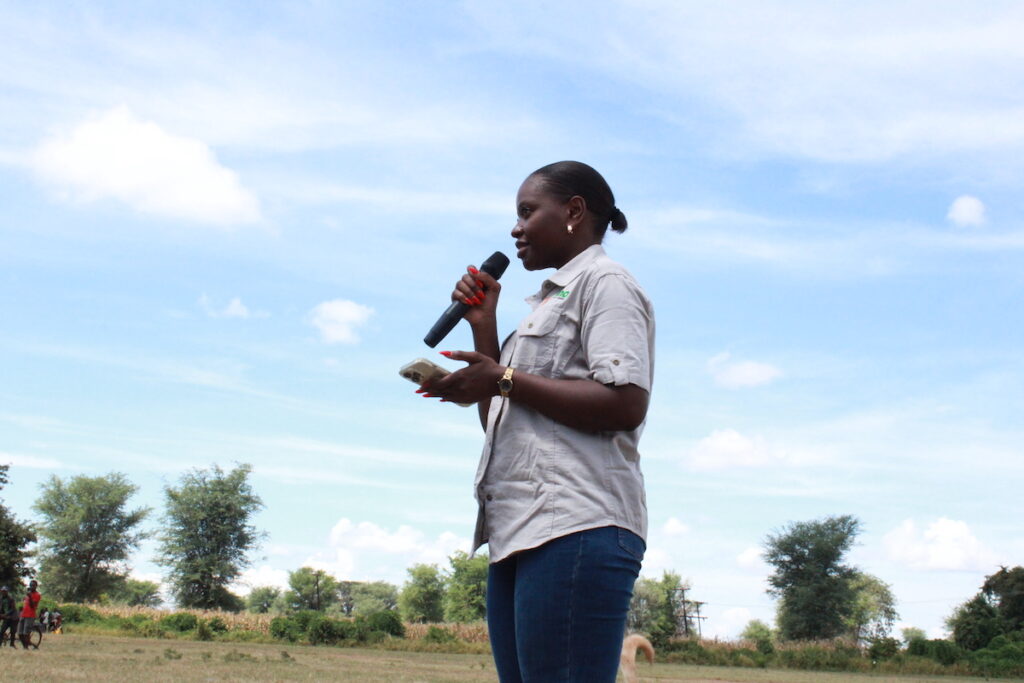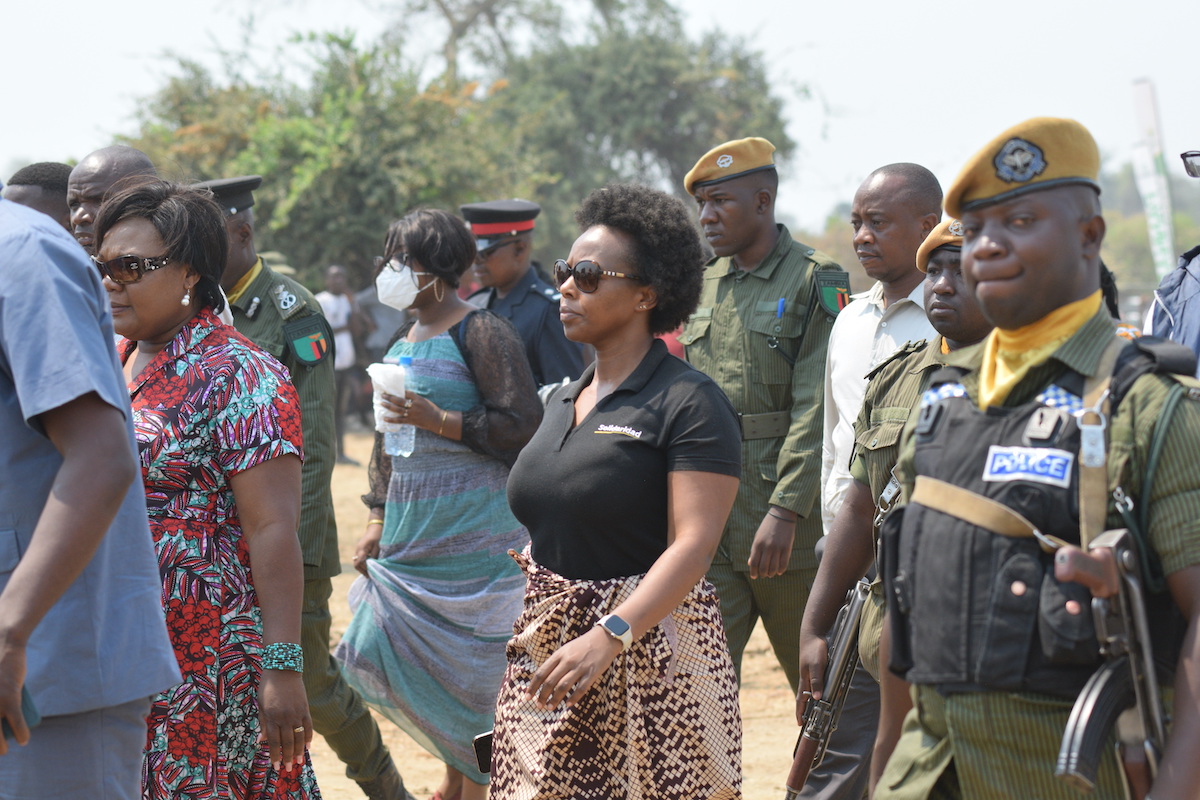Sheila Garakara works to encourage sustainable and inclusive supply chains in Zambia.
In Sub-Saharan Africa, more than 218 million people live in extreme poverty, with the majority of the region’s populations living in rural areas and dependent on agriculture for their livelihoods. In Zambia, work has started to leverage a regional service project that promotes poultry farming to improve nutrition through locally produced protein, while providing new income opportunities.
Created by Kvuno, the K’fuya project promotes poultry farming in Zambia. Solidaridad’s Country Manager for Zambia, Sheila Garakara, recognized that the K’fuya service offered a real opportunity to enhance the participation of Zambian women in agriculture.
“Empowering women is not just a moral imperative; it is essential for achieving sustainable development in agriculture. One thing that resonates with me is positioning women as vital stakeholders who are worthy of being counted. To this end, we have set a target of calling for a turnaround by incorporating no less than 30 percent women in our agricultural training activities,” says Garakara.
Kvuno, a Solidaridad partner, takes a holistic approach to its efforts to include women and youth in its poultry programming. Lydia Banda, Regional Manager at Kvuno, emphasized the importance of women in the effort to drive Zambian agriculture forward.

“At Kvuno, inclusivity is at the core of our operations. We believe that by adopting a gender-inclusive approach, we can unlock the full potential of the agricultural sector. It’s not just about empowering women; it’s about creating a balanced environment where everyone can thrive,” says Banda.
Our vision extends beyond numbers. We encourage an inclusive approach where everyone—men and women alike—are part of the conversation and solutions.
Sheila Garakara, Solidaridad Country Manager for Zambia
The K’fuya poultry service addresses income diversification and food security and supports financial literacy through village banking systems. The service, and the accompanying poultry farm training, is making significant strides in Zambian communities.
Recognizing that a commitment to gender inclusion needs to include both men and women, Garakara has committed to the use of Kvuno’s ‘Z’wardy’ service. Z’wardy is a rewards programme that promotes the adoption of climate-smart practices and other activities, like support for women in poultry, that boost production and productivity.
Garakara describes the poultry training as follows: “Men who bring their wives to training sessions are awarded extra Z’wardy points, which they accumulate and can redeem as gifts such as small farming equipment. This incentive is designed to foster an environment where women’s contributions are valued and their voices are heard.”
Kvuno’s Lydia Banda notes the importance of efforts to encourage poultry farming in Zambia. She goes on to say that, “Impact investments are crucial in this journey. We call upon stakeholders, investors, and partners to join us in this mission. Together, we can create a more inclusive, sustainable, and prosperous future for the Zambian agricultural sector.”

About the partners
Kvuno is a leading provider of digital empowerment solutions for smallholder farmers. It supports individuals and fosters impact investments to achieve sustainable development goals.
Solidaridad Southern Africa is working to provide access to finance, integrated technology, and widespread adoption of good practices throughout the southern African region. The organization encourages creativity and integrated local knowledge to improve livelihoods, and to develop new approaches to equity and gender inclusion.

